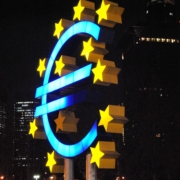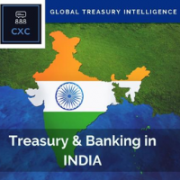Blockchain and the Music Industry: Singing the Blues again
22-08-2022 | Carlo de Meijer | treasuryXL | LinkedIn |
There is a technology that could bring fundamental changes to the music industry: blockchain. Blockchain may solve many of the existing problems and challenges in the music industry. Read now the latest blog by Carlo de Meijer, in which he argues the shortcomings within the music industry, and how blockchain can be a solution for these.

By Carlo de Meijer
I am a music fan. Of all sorts, from classic, to pop, to etc. In the sixteenths, I visited the National Jazz and Blues Festival in Plumpton South England. And there I saw Deep Purple for the first time. It was great.
Recently I read that, notwithstanding the music industry is an incredibly big business, many artists still have a pover life. This while the main streaming platforms such as Spotify and other intermediaries are grasping more than 80% of the revenues.
There is however a technology that could bring fundamental changes: blockchain. Blockchain may solve many of the existing problems and challenges in the music industry.
The Music Industry: present state
But before going into more detail in what blockchain could bring, let us first look at the problems in the music industry this technology could help to resolve.
Over the past few decades, the music industry has undergone constant change and
has seen many disruptions over the years. For decades record labels like Universal Music Group, Warner Music Group, and Sony BMG have dominated and controlled the whole music industry, managing the music rights and reaping much of the profits.
Since early 2000 music streaming platforms have emerged as new market leaders thereby triggered by the arrival of the internet. These streaming platforms such as Spotify and YouTube have helped to change the story to some extend and transformed the way music is experienced by making it more widely accessible to users.
Shortcomings within the music industry
Though these platforms brought in more disruptions, while changing the stakeholder landscape, the old structures that formed the music value chain have hardly changed.
That also means that a number of big shortcomings still exist, including rising operational costs and high administrative fees, minimal artist pay-outs due to lots of middlemen, overall lack of transparency especially when it comes to metadata and copyrights, and as a result inefficient and lengthy royalty payment processes as well lack of global collaboration due to an absence of trust.
Many middlemen
The current music industry is overloaded with a large number of middlemen like record labels, radio companies and streaming services. That also means that a very significant proportion of royalties are not received by artists, either because of high and costly administrative fees while it is hard to determine how much one typical artist is supposed to receive.
Centralised services
Another shortcoming is that most centralized music streaming services act like search engines. These are often inaccurate, unsafe, and vulnerable to malicious agents. And, as with any centralized search engine, there is an algorithmic bias that might favour and give more exposure to some artists or tracks and neglect others.
No global database for copyrights and neighboring rights
And there is the low transparency, especially when it comes to metadata and copyrights. Although the volume of data has increased manifold, there is still no global database for copyright and neighboring rights. To manage this chaotic amount of different rights, a complex structure has been developed, whereby the music industry was turned into a complicated array of publishing and recording agreements and other licenses. Finding who is the owner of a determined right in order to obtain a license could be difficult or even impossible. Artists often don’t know how their royalty payments are calculated
Minimal artists pay-outs
And as a result of all these shortcomings, while the music business is still very much booming and makes billions of dollars, most of the artists themselves are receiving minimal pay-outs. In 2020, musicians only gained 12% of $50 billion generated in the music streaming industry, according to a Citigroup report. On top of that it can take years for the money to reach the artist’s bank account.
Blockchain as a solution
Since blockchain technology is based on the ideas of fully database decentralisation and enhanced security, it holds huge potential for the music industry to overcome a lot of these challenges faced by music fans and artists.
Blockchain and the use of smart contracts could revolutionize and fundamentally change the music industry by removing third party middlemen from music sales and centralized music streaming platforms and put the power and control back into the creators’ hands from an economic and creative perspective.
By bypassing this long list of intermediaries blockchain could ease the process of copyright, allow artists to verify the copyright of their songs, thereby streamlining royal payments. They could thereby solve the problem of adequate compensation for artists and right holders, ensure more efficient and equitable royalty distribution and revenue sharing, and secure music rights and intellectual property management.
Improve copyrights/intellectual property management
Blockchain holds huge potential for the music industry, particularly for music copyrights and intellectual property management. This technology can help securely manage music rights by introducing transparency in music ownership rights and royalties, via the launch of music rights marketplaces and royalty management platforms.
For artists blockchain could bring direct management of copyright and intellectual property by having a comprehensive peer-to-peer database in which detailed music copyright and intellectual property information is stored. This by using smart contracts containing up-to-date information anybody can view and verify, thereby ensuring that the right people get compensated for the content’s use.
Deeper data insight: transparency and traceability
This massive database would present benefits and opportunities for both collection societies, distributors, and labels, in terms of better marketing and curation, along with verification of the data itself thanks to its immutability, inalterability and transparency.
As music is recorded on the ledger with a unique ID and time stamp, this would address the longstanding issues of consumers downloading, copying and altering digital content. By saving their work directly to a blockchain, it creates an immutable ledger which makes it impossible for someone to steal or copy lyrics or melodies—artists can essentially own their own “masters.” That would also make it more difficult to attack a blockchain database or tamper with the data, because the members of the blockchain network will immediately spot a change to one part of the database.
Full audience ownership
Blockchain platforms also allows full audience ownership. The blockchain makes up for a secure way to prove ownership over a specific piece of music, as well as confirm every person who is involved in its copyright. Blockchain and smart contracts can automate this process by allowing artists to create an immutable record listing all their contributors, producers, and others who participated in the creative process of music files. Every time music files are transferred on the blockchain; this data stays intact. Additionally, it can grant all streaming and fan activity data directly to the hands of the artists. As a result blockchain provides deeper data insights into music lovers’ favourite artists, music videos etc
Instant micro-payments
Blockchain and the use of smart contracts could also solve the issue of adequate compensation for artists and rights holders with instant micro-payments. Blockchain smart contracts could thereby be used to optimise automatic payments, with no middlemen delaying or taking a portion of this payment. They could set the terms under which the music can be downloaded and used, as well as the percentage of royalties to be destined to each copyright holder. Through smart contracts musicians could be paid for fractions of a cent after each sale or stream, allowing the process of royalty payments to take place in seconds instead of multiple months. This paves the way for a new approach to providing on-demand music services, whereby users choose their favourite record and reward and royalties and profits go directly to the artists themselves.
Fostering closer artist-fan relationships
Blockchain technology also enables artists to access some other important sources of revenue for independent musicians: engaged groups or fans. Blockchain music distribution platforms would be able to connect artists directly with listeners, building a direct seller-consumer relationship. Everyone would have equal chances to be found based on relevancy to the search query instead of being pushed by an algorithm.
Composers and artists will no longer be obliged to go through intermediaries such as purchasing platforms and financial brokers, enabling them to take a much large share of the earnings when their music is played while reducing the cost for listeners to access music.
Blockchain based music platforms
The interest in blockchain technology by the music industry is rapidly growing.
There are now a fast growing number of initiatives by artists and start-ups developing and launching music platforms based on blockchain technology, aimed at changing the face of the music industry and put power in the hands of artists and fans.
Apart from platforms focused on music streaming, streamlining royalty payments and allow direct artist-fan interaction, blockchain is increasingly being used to construct music licensing platforms, platforms to manage ownership rights and payments, while there are a growing number of platforms that operate as music rights marketplace, and as a peer-to-peer blockchain music database creating a music library for film and television.
In this blog I will only describe these platforms to give an idea how they work, what their goal is and just mention a number of interesting platforms that are nowadays operational. A number of these platforms can be found in other blogs such as “15 companies utilizing blockchain in music to reshape a changing industry” from Sam Daley, June 29, 2022.
Music streaming platforms
Blockchain-based streaming platforms allow for the transparent and secure peer-to-peer transfer of music and music related purchases. They connect artists and fans directly without the interference of intermediaries, thereby greatly solving the payments issue getting up to 90% of the streaming revenues. These platforms that are aimed to facilitate the creation, consumption and distribution of music in a shared economy, may bring a high level of trust, automation and transparency to the process. Through new streaming platforms using blockchain technology and non-fungible tokens, or digital assets, it is the artist themselve, and not the record labels, who stand to benefit. They ensure that artists receive compensation for their music straight from their fans, while most of the revenues goes to the artist. There are a number of these platforms that incentives music discovery even further by allowing users to receive a share of royalties. Main streaming platforms include the names like Audius, BitSong, Music Foundation, NewCoin Founder and Opus.
Music licensing platforms
And there are decentralized music licensing platform for music rights holders and creators that allow them to perform their licensing transactions directly, or provides on-chain licensing for blockchain native content such as intellectual property for audio, visual and images. These platforms thereby utilizes smart contracts and crypto to facilitate more efficient licensing transactions and payments. These music licensing Platforms include names like Dequency and Digimarc.
Music copyrights marketplace/platforms
There are also several platforms, like eMusic, Mediachain, Musiclife, Open Music Initiative, as well as others, that address the copyrights problem and use blockchain technology to monitor music right holders and act as a royalty management platform that rewards both artists and fans. These platforms are exploring the use of blockchain to help identify the rightful music rights holders and originators so they can receive fair royalty payments.
There are music rights marketplaces that allow music fans to directly fund their favourite artists, songwriters and producers. In exchange, fans can receive royalties generated from their favourite recordings. The platform accomplishes this by collecting royalties from performing rights organizations, record labels and publishers on behalf of fans and then tracks them using proprietary blockchain technology. Other platforms feature instant royalty pay-outs, a rights management and tracking database, fan-to-artist crowdfunding and back-catalogue monetization for copyright holders.
Music database
And there are the various platforms like Viberate, Mediachain, Blokur, Verifi Media and Mycelia that act as peer-to-peer, blockchain music database for sharing information across different applications and organizations. Some of these music databases act as a source for global publishing data for management and monetization of music, thereby combining different sources of rights data in one database. And there are peer-to-peer, blockchain databases for sharing information across different applications and organizations. Others run an entire database on blockchain to ensure that artists are paid fairly and acknowledged quickly, containing full information about a song, including ID’s, acknowledgements, business partners and payment mechanisms, so all contributors are treated fairly.
Direct artist-fan connection platforms
Artists are looking to blockchain technology to connect more directly with fans and to bolster their earnings. These direct artist-fan connection platforms can also offer economic rewards to music listeners, increasing the entire experience more interactive and rewarding. Artists could thereby promote their own music and offer special rewards for buyers like extra downloads or rights. Consumers can directly pay for streaming music using blockchain platforms. They would then have the same access to their music, with a more direct connection to the artist who would be paid instantly via the same currency. Examples are Choon that is helping to provide new avenues for more revenue and incentivizing fans through rewards for listeners curating personalized playlists, while Drrops allow artists to communicate directly with their fans and offer them exclusive content and perks while Viberate rewards fans with native VIB tokens.
Non fungible tokens (NTFs)
A growing number of artists in the music world now also have entered the world of NFTs in a massive way. NFTs or non-fungible tokens are seen as the perfect way to create proofs of authenticity for digital content. They promise improved access to global markets for so-called indie artists and other creators to showcase and sell their art including music streams.
NFTs are stored on a blockchain network, are unique and indivisible and can be used to indicate ownership of one-of-a-kind goods. They are protected by the blockchain, which means no one can change the ownership record or create a new NFT. This helps artists to prove that they have created their artworks. In turn, this helps them to get fair compensation for their work.
An NFT can either be one of a kind, like a music song, or one copy of many, but the blockchain keeps track of who has ownership of the file. These attributes make NFTs ideal for tokenizing music. Music NFTs can technically contain anything digital, like logos, album covers, live performances, concert photo prints, videos of life streams etc.
NFTs allow you to buy and sell ownership of unique digital items and keep track of who owns them using the blockchain, aside from a musician making an initial NFT sale and profiting from it, as they can keep a percentage of all future NFT sales.
Current and future challenges
But not all risks are gone when using blockchain. Notwithstanding the arrival of official crypto regulations such as MICA in the EU, there are still no guidelines, legislation, or established case law for using blockchain in the music industry.
There are still a number of challenges, regulatory and structural, that need to be addressed. One of the most pressing issues for the music industry, notwithstanding blockchain, is the lack of a global, comprehensive database of rights. And there is the issue of disintermediation, as is common with many, if not all, tech-driven disruptions. Another issue is: how will the traditional players in the music world react.
One standard across all music databases
With multiple stakeholders, including artists, music publishers and labels, music streams, collecting societies, and event organisers, achieving consensus on data standards is inherently challenging. If blockchain is to be adopted at industry level, it is all the more crucial to have correct and complete rights data at the onset, since once recorded on the blockchain it will be inherently unalterable. Today’s music industry consists of a large number of databases with little to no interoperability, meaning that if you mention a songwriter in one database, it is not going to synchronize in another. Stakeholders in the music industry don’t share their data nor use a standard music file format.
Data protection
And there is the issue of data protection. Just as other industries, the music industry is also required to comply with the EU General Data Protection Regulation (GDPR). When using blockchain to record personal data, these rules become especially complex since the technology is designed to prohibit retroactive changes to the ledger. This is directly in violation at the GDPR guideline allowing individuals the right to ask for their data to be deleted. Other areas like intellectual property laws will also need to be revisited in the light of new ways of working. This would solve many issues such as conflicting or incomplete records and allow content creators to have all elements of their musical work completed on a universal system.
Hacks
Notwithstanding it was said that blockchain for the music industry would prevent hacks and other misuses, Audius, the blockchain music streaming platform, lost millions in a recent hack. Hackers that breached the platform were able to steal approximately $18 million AUDIO (Audius crypto token) that is estimated to be worth around $6 million. This is definitely a wakeup call for these platforms to continuously update their security measures.
Transition period
With blockchain adoption, the role of traditional labels, streaming platforms and copyright collection societies could be diminished with the increase in smart contracts and micropayments. But it is still uncertain what will happen during the transition period. How will traditional players react: in a cooperative way or would they “back against the wall”. Steering the industry past the chaotic phase will be critical for it to achieve its full potential.
Forward looking
Though blockchain in music is still in its early years, the technology undoubtedly has the potential of disrupting the music industry for good. Given the firm rise in blockchain-based music platforms it will fundamentally change the manner in which the music business is being conducted. It will lead to the development of a more balanced and fair music ecosystem, one focused on artist and consumers.
The music market will certainly undergo structural change as blockchain adoption spreads. It will shift the power from present intermediaries thereby saving the music industry billions in lost revenues, delayed payments and legal costs and help artists regain ownership and revenue. It will also create ways to reward artists directly, this by revolutionising the rights and royalties process, ensuring artists, writers, publishers and everyone in the music. Ultimately, the financial benefits to artists will likely boost overall creativity.
But in order for this to happen, the industry needs to come together to determine a standard practice and trust in each other and the technology. Thanks for reading!
Carlo de Meijer
Economist and researcher










